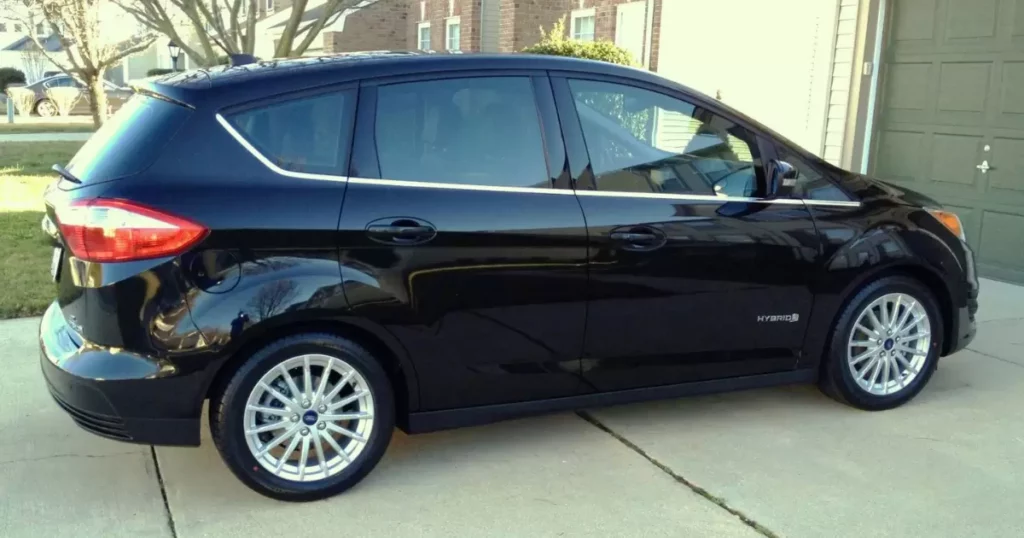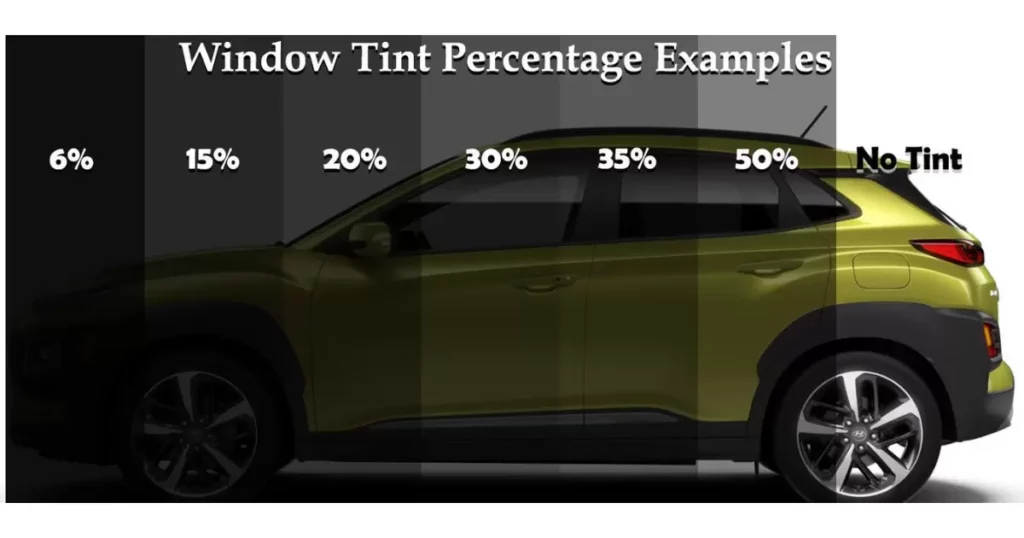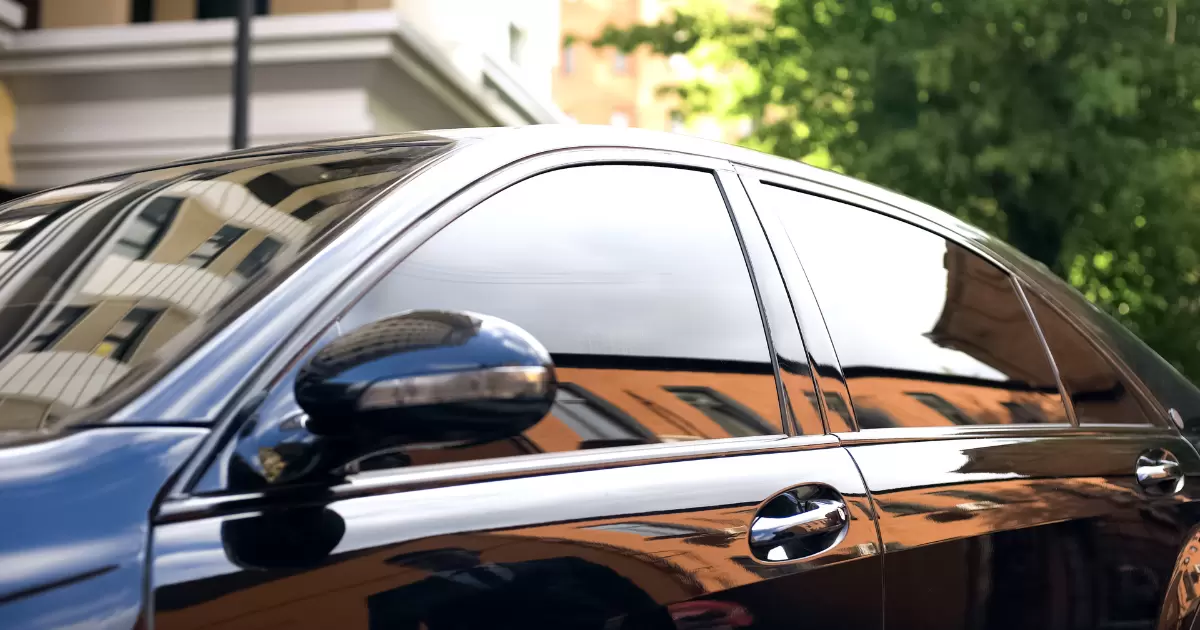Tinting in New Jersey refers to the practice of applying window tints to vehicle windows without violating state regulations. In New Jersey, there are specific laws governing window tinting, and exceeding allowable limits can result in fines and penalties. Navigating these regulations while still enjoying the benefits of tinted windows is the essence of moving away from tinted windows in NJ.
How to get away with tinted windows in NJ? It’s a question many car enthusiasts ponder as they seek to customize their vehicles without running afoul of the law. With New Jersey’s strict regulations on window tints, finding the right balance between style and legality becomes a challenge for residents.
To get away with tinted windows in NJ, it’s crucial to understand the specific tinting laws and regulations in the state. Familiarizing yourself with permissible tint levels, allowable window coverage, and other relevant details can help you make informed decisions when customizing your vehicle.
Understanding New Jersey Window Tint Laws
In New Jersey, window tint laws regulate the darkness of tinted windows on vehicles. The law prohibits front windshield tinting, except for the top 4 inches. For side windows, drivers must have at least 70% visible light transmission.
This means that only a small percentage of the window can be tinted to maintain visibility and ensure safety on the road.It’s crucial for New Jersey drivers to comply with these regulations to avoid fines and ensure road safety.
Understanding the specific requirements for window tinting, such as How Long Does It Take To Tint Car Windows?, helps drivers make informed decisions about their vehicle’s window modifications while staying within the legal limits set by the state.
What are the NJ Car Window Tint Laws?
New Jersey has specific laws regarding car window tinting. The regulations set a maximum allowable tint darkness for different windows in vehicles.
For example, the front side windows must allow at least 70% of light, while the rear side and rear windows can have darker tinting as long as they meet certain criteria.It’s important to note that New Jersey’s window tint laws aim to ensure visibility and safety on the road.
Drivers should be aware of these regulations to avoid potential fines and ensure compliance with the state’s tinting guidelines.
What is the Darkest Legal Tint in NJ?

In New Jersey, the darkest legal tint for car windows is 35% visible light transmission. This means that only 35% of sunlight can pass through the tinted windows. It’s important for residents to adhere to this regulation to avoid legal consequences.
The New Jersey Window Tint Law aims to ensure road safety by maintaining visibility for drivers and law enforcement. Violating these tint limits can result in fines and penalties, so it’s crucial for vehicle owners in New Jersey to be aware of and comply with the state’s tint regulations.
Is 35% Tint Legal in NJ?
In New Jersey, window tint regulations are clear 35% tint is not legal. The law specifies that front side windows must allow at least 70% of light to pass through. This means that exceeding the 35% tint limit can result in fines and penalties.
It’s essential to adhere to these regulations to avoid legal consequences. Ensure your vehicle’s window tint complies with the New Jersey law to stay within the legal limits and drive safely.
Front Window Tinting
You are not allowed to put any tint on your windshield. Front Side Windows – No tint is permitted on front side windows. Rear side windows – you can tint them, and darker tints are permissible. Rear Window – Any dark markings are allowed on this window.
Regulations typically prohibit any tint on the windshield. This rule aims to maintain optimal visibility for the driver, ensuring a clear line of sight, especially during nighttime driving. It prioritizes safety by preventing any obstruction that might compromise the driver’s ability to see the road clearly.
Enforcement of NJ Window Tint Laws
New Jersey enforces strict laws regarding window tinting. These regulations aim to maintain road safety and visibility for both drivers and law enforcement. The law specifies that the front side windows must allow at least 70% of light, while the rear and back windows can have darker tints.
Drivers in New Jersey should be aware of these rules to avoid potential fines and legal consequences. It’s crucial to comply with the specified tint percentages to ensure a safer driving experience for everyone on the road. Stay informed about New Jersey’s window tint laws to drive legally and responsibly.
Can You Get Pulled Over for Just Tints in NJ?
In New Jersey, you can get pulled over just for tints that are too dark. The law sets limits on how much tint you can have on your car windows. If your tints exceed the allowed levels, you might face a traffic stop and a potential fine.
New Jersey’s window tint law aims to maintain visibility and safety on the roads. Make sure to check and comply with the specific tint limits to avoid getting pulled over and facing penalties. Keep your car windows within the legal tint boundaries to ensure a smooth and hassle-free ride in the Garden State.
Do Police Officers Actively Ticket Window Tint Violations?
Police officers in New Jersey actively issue tickets for window tint violations. The state’s window tint law sets specific guidelines on how dark vehicle windows can be.
Officers regularly patrol and enforce these regulations, ensuring that drivers comply with the established standards.New Jersey’s law requires front side windows to allow at least 70% of light, while rear side and rear windows can have any darkness.
Police actively monitor and pull over vehicles with tinted windows that do not meet these standards, emphasizing the importance of adhering to the state’s window tint regulations to avoid penalties and fines.
How Often Do Cops Pull Over People with Over Tinted Windows?

Police in New Jersey frequently pull over drivers with overly tinted windows. The state’s window tint law sets specific limits on how dark car windows can be. Officers regularly enforce these regulations, checking for compliance during routine traffic stops.
If your windows are too dark, you’re likely to attract attention from law enforcement.To avoid getting pulled over, New Jersey drivers should ensure their window tint meets the legal requirements. The law helps maintain visibility for both drivers and police officers, ensuring a safer driving experience for everyone on the road.
NJ Inspection and Window Tint
In New Jersey, vehicle inspections are a regular requirement. The state also has specific laws regarding window tinting. To the New Jersey Window Tint Law, vehicles must adhere to certain tinting limits to ensure safety and compliance.
Drivers need to be aware of these regulations to avoid potential fines and ensure a smooth inspection process.The New Jersey Window Tint Law sets limits on the darkness of tinted windows, measured as a percentage of visible light transmission.
This law aims to maintain visibility for drivers and law enforcement while promoting road safety. It’s crucial for vehicle owners in New Jersey to understand and follow these regulations to keep their vehicles in line with state laws and regulations.
Can You Pass the NJ Inspection With Tinted Windows?
In New Jersey, passing a vehicle inspection with tinted windows depends on complying with the state’s window tint laws. These laws dictate the permissible levels of tint for different windows.
For instance, front side windows must allow at least 70% of light, while rear side and rear windows can have darker tint.It’s essential to ensure your window tint meets these regulations to avoid inspection issues.
Non-compliance may result in a failed inspection, requiring adjustments to the tint levels for a successful reevaluation. Understanding and adhering to New Jersey’s window tint laws will help you navigate the inspection process smoothly.
Tint Percentages and Getting Away With Tinted Windows

Tint percentages play a crucial role in adhering to New Jersey’s window tint law. The law stipulates that the front side windows must allow at least 70% of light, while the rear and back windows can have darker tints, as long as they allow more than 20% of light.
Ensuring compliance with these percentages is essential to avoid penalties and legal consequences.To get away with tinted windows in New Jersey, it’s vital to be aware of and follow the specified tint percentages.
Choosing the right tint that aligns with the state regulations ensures both style and compliance. Being informed about the law not only enhances the aesthetics of your vehicle but also keeps you on the right side of the legal spectrum.
What Tint Can You Get Away With in NJ?
In New Jersey, the window tint law sets specific limits on how dark vehicle windows can be. The law allows a maximum of 30% tint darkness for the front side windows, while the rear side and rear windows can have any darkness.
This means you can’t go too dark on the front windows, but you have more flexibility for the back windows.It’s essential to comply with these regulations to avoid legal issues and fines.
So, if you’re thinking about tinting your vehicle windows in New Jersey, make sure to stay within the allowed limits to enjoy the benefits of tinted windows without breaking the law.
What Percent Window Tint Can I Get Away With in NJ?
In New Jersey, the window tint law sets a limit on how dark your car windows can be. The law allows a maximum of 20% tint on the front side windows and 0% on the windshield. For the rear side windows and the back window, you can go as dark as you want.
It’s important to note that exceeding these limits can result in fines. So, when considering window tint in New Jersey, stick to the allowed percentages to avoid any legal issues on the road.
Legal Consequences and Tickets
New Jersey has strict laws regarding window tinting on vehicles. The law prohibits drivers from having window tints that block more than 30% of light. If caught with illegal tint, drivers face consequences such as fines and potential points on their driving records.
These legal consequences aim to ensure road safety by maintaining visibility for both drivers and law enforcement. It’s essential for New Jersey motorists to adhere to these regulations to avoid tickets and maintain a safe driving environment.
How Much is a Ticket for Tinted Windows in NJ?
In New Jersey, the cost of a ticket for tinted windows depends on the degree of darkness exceeding the legal limit. Law enforcement officers in the state strictly enforce window tint regulations to ensure road safety. Violating the New Jersey Window Tint Law may result in fines, and the amount varies based on the severity of the violation.
To avoid penalties, drivers should be aware of the legal limits for window tinting in New Jersey. Understanding and adhering to these regulations not only prevents fines but also promotes a safer driving environment for everyone on the road. Keep your windows within the specified limits to enjoy a trouble-free driving experience in the Garden State.
The New Jersey Police Department is strict about the tinting laws, and your first offense might cost you $1000, the second one will cost you $5000, while the subsequent offenses might cost you even more, depending on the NJ Statutes 39:3-75.3.
How Much Tint is Legal in NJ?
In New Jersey, window tint laws regulate how dark car windows can be. The legal limit for tint darkness on the front side windows is 70%, meaning that at least 70% of light must pass through. However, there are no restrictions on how dark the tint can be for the rear side windows and the rear window.
It’s important to follow these regulations to avoid fines or other consequences. Adhering to the New Jersey window tint law ensures that drivers maintain clear visibility and comply with the state’s guidelines for road safety.
Special Cases and Exemptions
In New Jersey, window tinting laws are clear and strict. Special cases or exemptions are limited. Most vehicles must adhere to the standard regulations to ensure visibility and safety on the road.
There are exceptions for medical reasons. Drivers with a medical condition that requires protection from sunlight may apply for an exemption. It’s important to follow the state guidelines and obtain the necessary documentation to ensure compliance with the New Jersey Window Tint Law.
Window Tint Prescription Online
Want to tint your car windows online? Get your window tint prescription hassle-free! New Jersey has specific window tint laws, so make sure to stay within the legal limits for a clear view on the road. Visit our website to easily order your tint prescription and drive legally in style.
In New Jersey, window tint laws aim to maintain road safety. Ensure your vehicle’s window tint complies with the regulations by obtaining a prescription online. Stay legal, stay safe!
Medical Exemption for Window Tint in NJ
In New Jersey, there are rules about window tint on cars. The law says that window tint must let a certain amount of light through. But, if you have a medical reason, you can get an exemption.
The medical exemption allows people with certain conditions to have darker window tint. It helps those who need extra protection from sunlight for health reasons. So, if you qualify for a medical exemption, you can have tinted windows on your car in New Jersey.
DMV Tint Exemption Form in NJ
In New Jersey, if you want to tint your car windows but have a medical condition requiring special tinting, you can use the DMV Tint Exemption Form. This form allows individuals with medical conditions to seek an exemption from the standard window tinting laws in the state.
It’s a straightforward process, and once approved, you can legally have tinted windows that cater to your medical needs while driving in New Jersey.The New Jersey Window Tint Law generally prohibits window tints beyond a certain darkness level.
However, the DMV Tint Exemption Form provides a practical solution for those with medical reasons. By completing this form and obtaining approval, you can enjoy personalized window tinting that adheres to your health requirements without violating the state’s regulations.
Future Changes and Updates
New Jersey’s window tint law is subject to future changes and updates. The state regularly reviews and adjusts regulations to ensure road safety. Stay informed about any modifications to the window tint law to comply with the latest requirements and avoid potential fines.
Keep an eye on official announcements and updates from the New Jersey authorities regarding window tint regulations. Being aware of changes ensures that your vehicle’s window tint remains within the legal limits, contributing to a safer driving experience for everyone on the road. Stay updated and drive confidently with compliant window tint in New Jersey.
NJ Tint Laws 2023
In 2023, New Jersey implemented updated window tint laws. These regulations aim to enhance road safety by ensuring optimal visibility for drivers and law enforcement. The law specifies the permissible tint levels for different windows, promoting transparency while maintaining a balance for privacy and glare reduction.
Vehicle owners in New Jersey must adhere to these tint limits, which vary for front, rear, and side windows. This proactive measure supports clear communication and understanding, fostering a safer driving environment for everyone on the road.
Stay informed and compliant with the new window tint laws to contribute to a secure and transparent driving experience in New Jersey.
| Window Type | Permissible Tint Level |
| Front Windows | Non-reflective tint with a VLT (Visible Light Transmission) of 70% or more. |
| Rear Windows | Non-reflective tint with a VLT of 70% or more. |
| Side Windows | Non-reflective tint with a VLT of 70% or more. |
Always ensure compliance with the specific language and requirements outlined in the official New Jersey window tint laws for the most accurate and up-to-date information.
Additional Information and Discussions
New Jersey has specific laws regarding window tinting on vehicles. These regulations are in place to ensure safety on the roads and to maintain clear visibility for drivers. According to state law, the front side windows must allow at least 70% of light to pass through.
While the rear side and rear windows can have a tint of any darkness.It’s essential for drivers in New Jersey to be aware of these regulations to avoid potential fines and ensure compliance with the law.
Discussions around window tint laws often involve considerations of personal preferences, privacy concerns, and the potential impact on vehicle aesthetics. It’s advisable for vehicle owners to stay informed about any updates or changes to the window tint laws to make informed decisions and avoid any legal issues.
Other New Jersey Window Tint Rules and Regulations
- In New Jersey, window tint regulations are clear and specific.
- The law permits a maximum of 35% visible light transmission for front side windows.
- Rear side and rear windows can have any darkness, but the rear window must allow at least 20% light transmission.
- Medical exemptions are allowed with proper documentation.
- Violating tint regulations may result in fines ranging from $50 to $75.
- Law enforcement actively enforces these regulations during routine traffic stops.
- It’s crucial for New Jersey drivers to adhere to these rules to avoid penalties and ensure road safety.
Tint Light Reflectance Law in New Jersey
New Jersey has specific rules and regulations regarding window tinting. The law in the state prohibits the use of tinting on the front windshield, except for the top four inches. Additionally, the side windows must allow at least 70% of light to pass through.
There are no restrictions on the darkness of tinting for the rear windows. However, vehicles with tinted windows are required to have dual side mirrors. It’s essential for New Jersey drivers to adhere to these window tint laws to avoid potential fines and ensure road safety.
Here’s a detailed table summarizing the New Jersey window tint rules and regulations
| Window Type | Tinting Rules |
| Front Windshield | Prohibited, except for the top four inches. |
| Side Windows | Must allow at least 70% of light to pass through. |
| Rear Windows | No specific restrictions on darkness. |
| Rearview Mirrors | Vehicles with tinted windows must have dual mirrors. |
It’s crucial for New Jersey drivers to be aware of and comply with these regulations to avoid potential fines and ensure road safety.
New Jersey Window Tint Laws Medical Exemptions
New Jersey window tint laws allow for medical exemptions. If you have a medical condition that requires special consideration, you can apply for an exemption to the standard window tint regulations.
This exemption allows you to have a darker tint on your windows to accommodate your medical needs.It’s crucial to note that obtaining a medical exemption for window tint in New Jersey requires proper documentation from a licensed medical professional.
The documentation should clearly outline the medical necessity for the tint, ensuring compliance with the state’s regulations. Be sure to consult with your doctor and follow the necessary procedures to ensure you meet the requirements for a medical exemption under New Jersey’s window tint law.
New Jersey Window Tint Laws Reddit
- In New Jersey, window tint laws regulate the darkness of window tinting on vehicles.
- The law specifies that front side windows must allow at least 70% of light to pass through.
- There are no restrictions on the tint darkness for rear side windows and the rear window.
- Medical exemptions exist, allowing darker tint for individuals with specific health conditions.
- Enforcement of these laws varies, and violations may result in fines ranging from $50 to $75.
- To stay compliant, drivers should be aware of the regulations and ensure their window tint meets the specified requirements.
To stay compliant, drivers should be aware of the regulations and ensure their window tint meets the specified requirements.
Comparison with Other States
New Jersey’s window tint law differs from those in other states. In the Garden State, vehicle window tinting regulations are relatively strict. The law allows for a maximum of 30% light transmission for front side windows and does not permit any tint on the windshield except for the top four inches.
Compared to some states with more lenient tinting laws, New Jersey prioritizes visibility and safety on the roads. It’s important for residents and visitors to be aware of these regulations to avoid potential fines and ensure compliance with the state’s window tint laws.
Here’s a simple table summarizing the New Jersey Window Tint Law and a brief comparison with other states:
| Window Tint Regulations | New Jersey | Comparison with Other States |
| Front Side Windows | Max 30% light transmission allowed | Stricter than some states |
| Windshield Tint | Only top 4 inches allowed | More restrictive than many states |
| Overall Impression | Prioritizes visibility and safety | Stringent regulations for safety |
Pennsylvania Tint Laws
Pennsylvania has specific laws regarding window tinting. The state permits non-reflective tint on the top six inches of the windshield. For the front side windows, tint must allow at least 70% of light to pass through. Rear side windows and the rear window can have any darkness of tint.In New Jersey, window tint laws also exist.
The front side windows must allow at least 70% of light, while the rear side and rear windows can have any darkness of tint. It’s crucial to be aware of these regulations to avoid potential legal issues related to window tinting in both Pennsylvania and New Jersey.
FAQs
Is it legal to have tinted windows in New Jersey?
Yes, it’s legal, but the front side windows must allow at least 70% of light.
Can I tint my windshield in New Jersey?
Yes, you can, but only the top six inches can have non-reflective tint.
What are the restrictions on rear windows in New Jersey?
There are no specific darkness restrictions for rear side and rear windows.
Are there consequences for violating New Jersey’s tint laws?
Yes, violating tint laws may result in fines and legal repercussions.
How can I ensure compliance with tint laws in New Jersey?
Ensure that the tint on your front side windows allows at least 70% of light to pass through.
Conclusion
In New Jersey, navigating tinted windows means understanding and following the state’s regulations. By ensuring that the front side windows allow a minimum of 70% light transmission, you can enjoy tinted windows without breaking the law.
While there’s some flexibility with rear side and rear windows, staying within the legal boundaries helps avoid potential fines and legal troubles.Adhering to New Jersey’s tint laws is a straightforward way to enjoy the benefits of tinted windows while staying on the right side of the law.
Being informed about these regulations ensures a smooth ride, free from the hassle of legal consequences, and allows you to personalize your vehicle while respecting the state’s guidelines.



